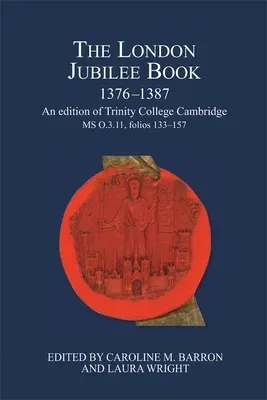Caroline M Barron
(Author)The London Jubilee Book, 1376-1387: An Edition of Trinity College Cambridge MS O.3.11, Folios 133-157Hardcover, 29 October 2021

Qty
1
Turbo
Ships in 2 - 3 days
Only 2 left
Free Delivery
Cash on Delivery
15 Days
Free Returns
Secure Checkout

Part of Series
London Record Society
Print Length
150 pages
Language
EnglishEnglish, Middle (1100-1500)
Publisher
Lincoln Record Society
Date Published
29 Oct 2021
ISBN-10
090095261X
ISBN-13
9780900952616
Description
Product Details
Author:
Book Format:
Hardcover
Country of Origin:
GB
Date Published:
29 October 2021
Dimensions:
24.64 x
15.24 x
1.78 cm
ISBN-10:
090095261X
ISBN-13:
9780900952616
Language:
English
English, Middle (1100-1500)
Location:
Martlesham
Pages:
150
Publisher:
Series:
Weight:
430.91 gm